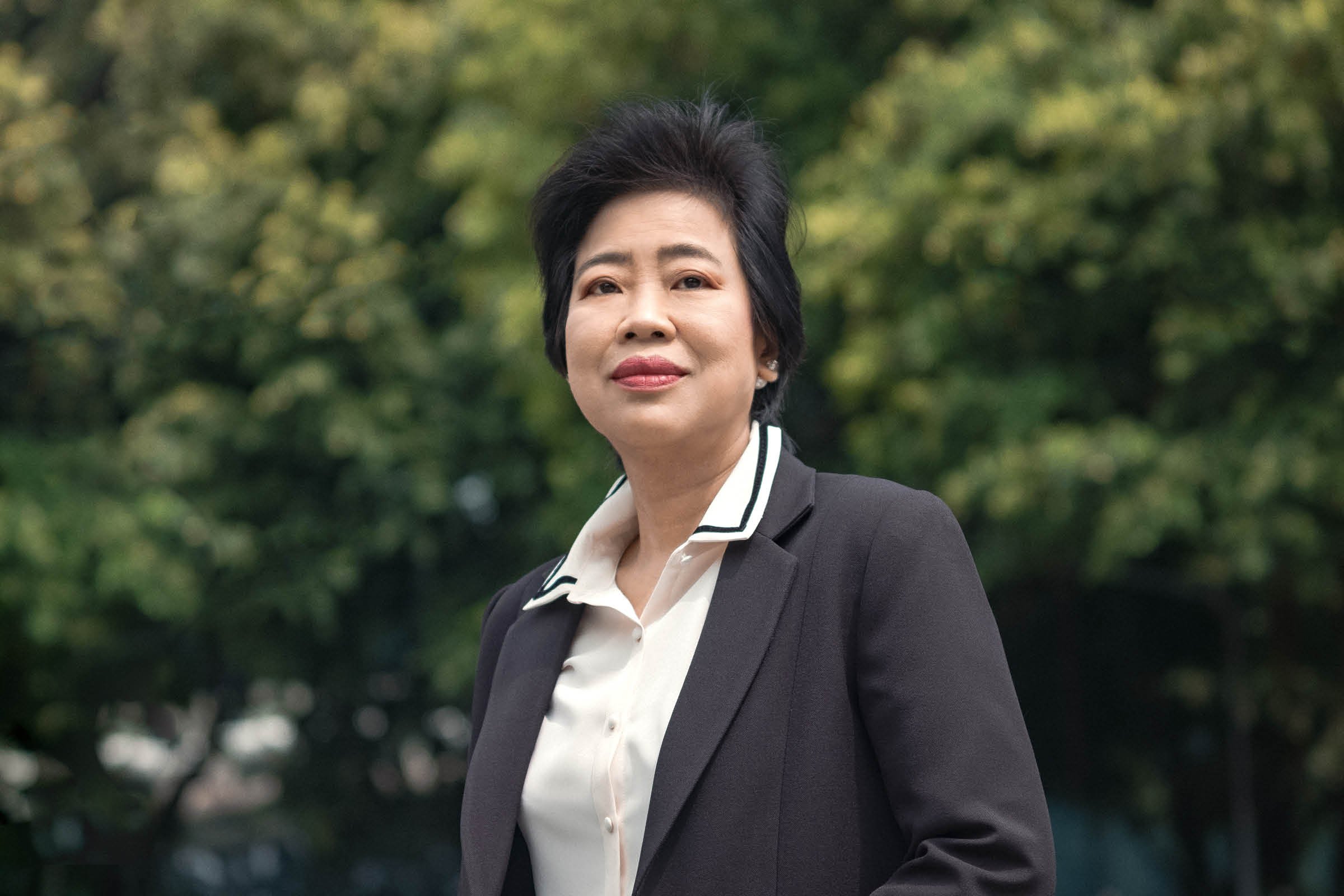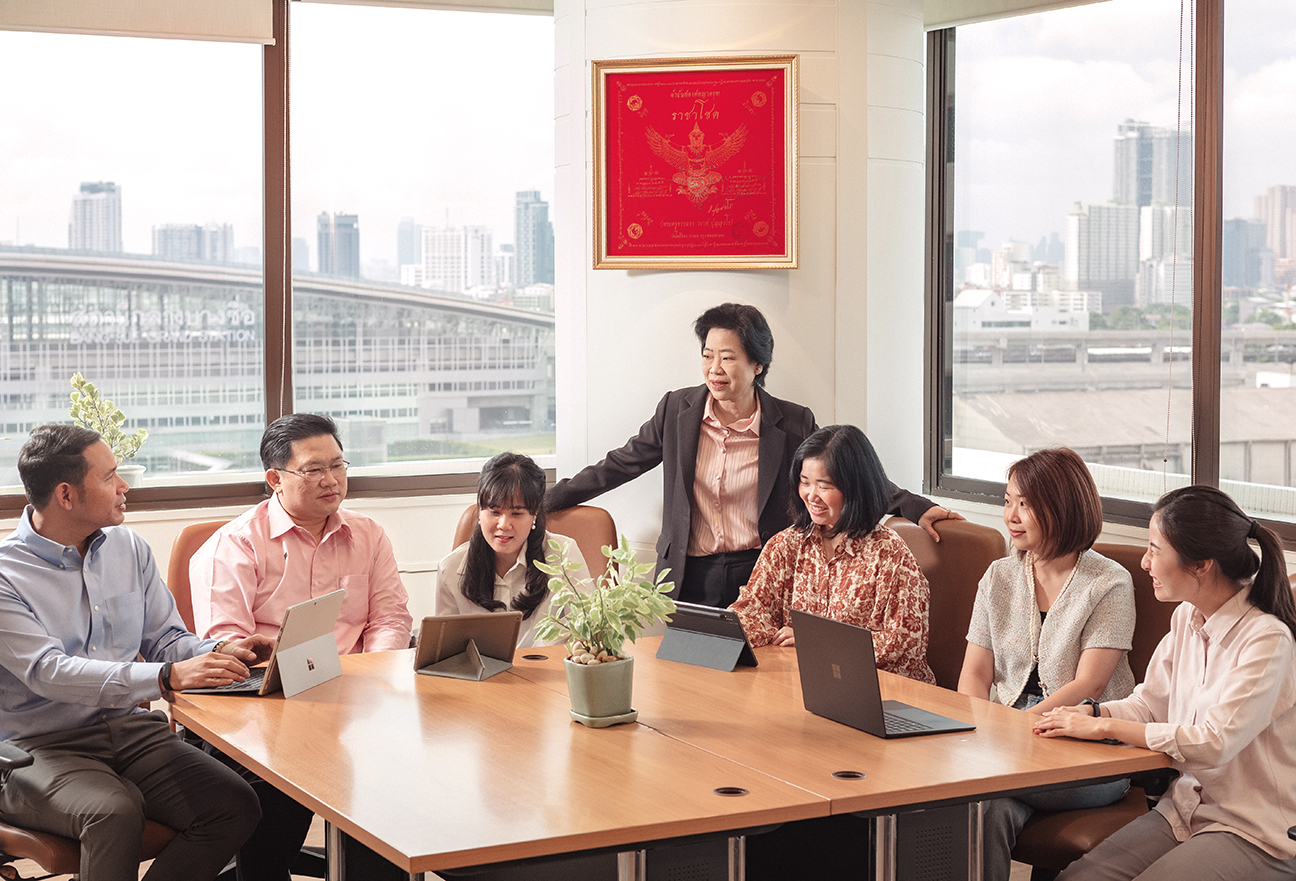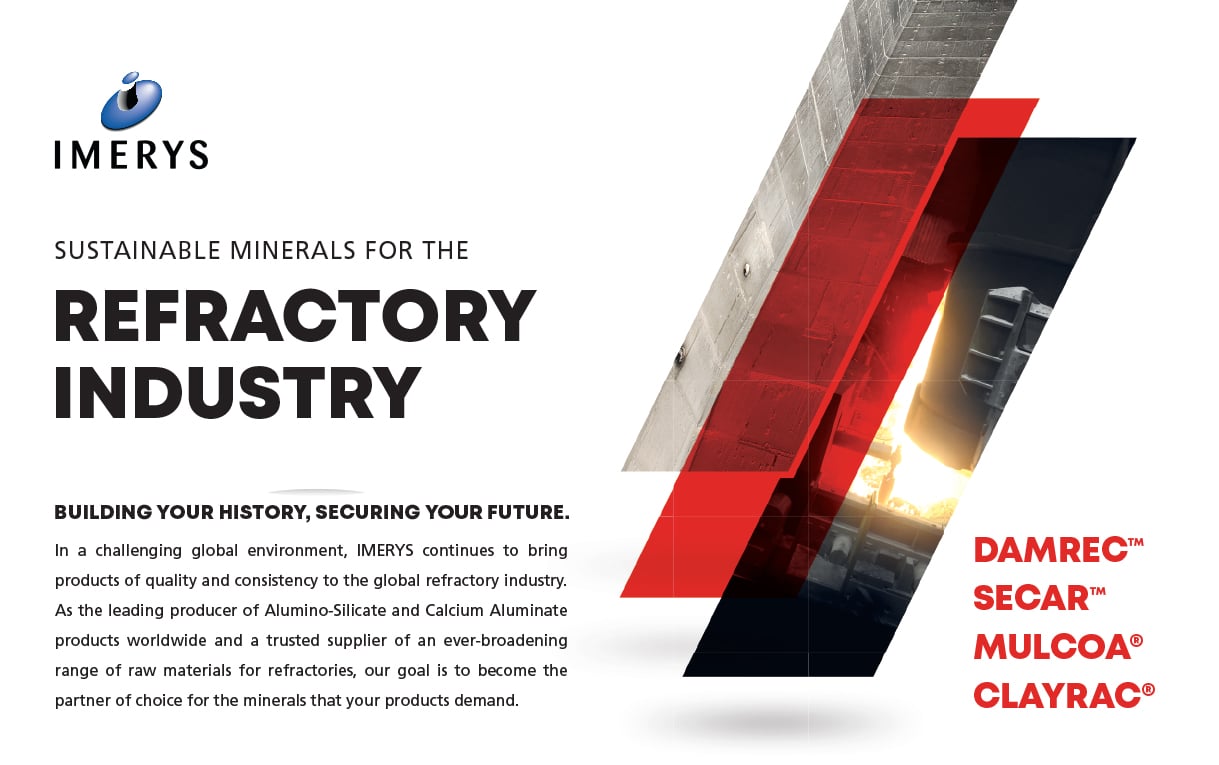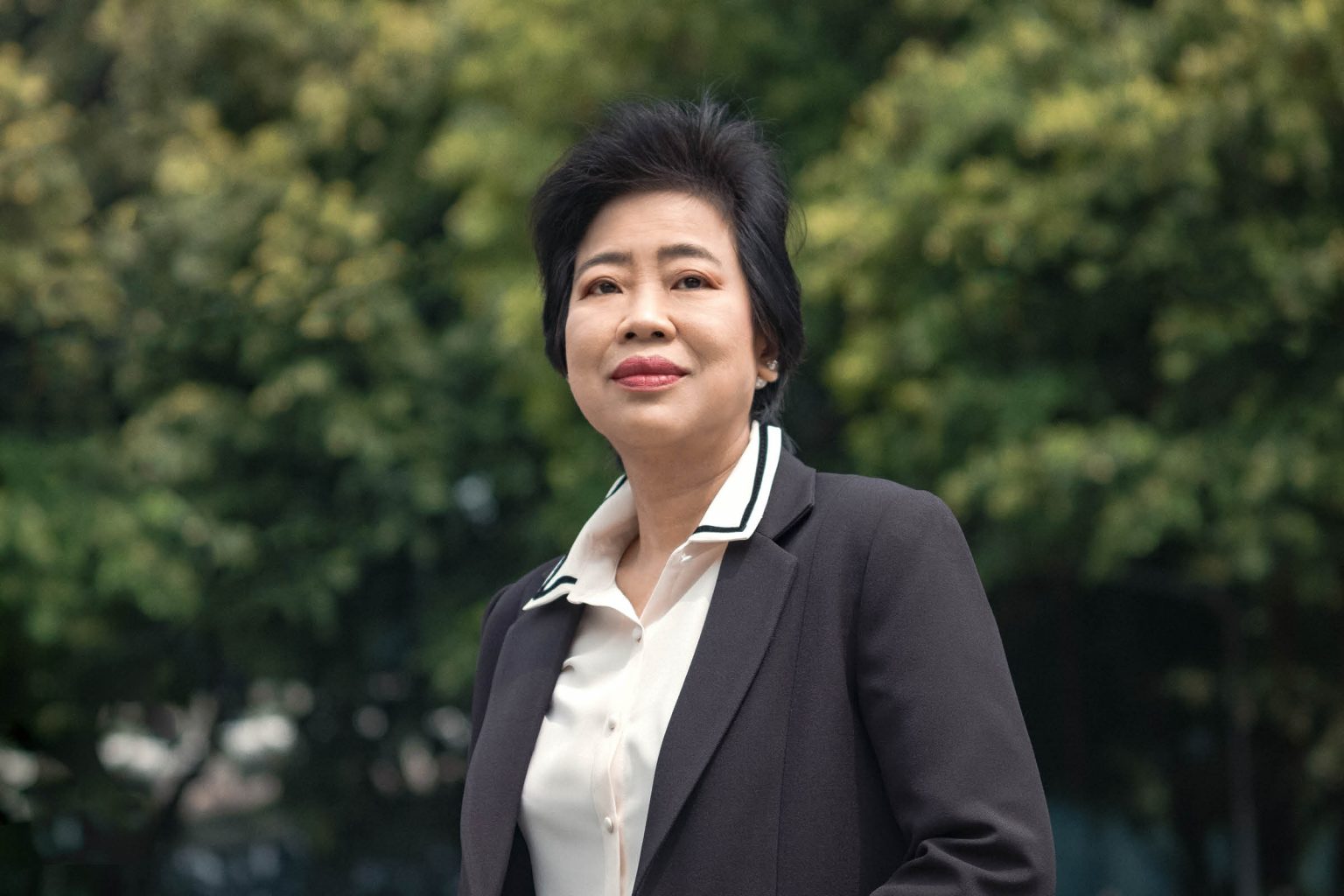People often find themselves in positions they never imagined when they set out on a career. Some find the diversions a prize, while others feel they’ve been caught in a dead end. Not so for Malee Thanapempulpol. While working in the refractory industry was not on her radar, she soon found that its role in manufacturing industries is pivotal to their success, and her sales expertise was much needed.

“In the first place, there was nothing special about refractory that attracted me,” Malee confesses. “But later on, I discovered that refractory is actually the heart of all industries that involve high temperatures because if refractory doesn’t work, the factory has to stop. I started with Siam Refractory as a sales engineer, and I have been working in either sales or technical services for my entire career. My last title before I became Managing Director was Sales Manager for Domestic Markets.”
The Siam Refractory Industry Company (SRIC), founded in 1953, sits in the Cement-Building Materials Business Unit of Siam Cement Group (SCG), Thailand’s largest industrial conglomerate, which has three units: SCG Cement-Building Materials, SCG Chemicals and SCG Packaging. Today, SRIC is the largest refractory manufacturer in South-East Asia, it holds the Deming Prize for Total Quality Management (TQM) and services clients in a wide range of industries in more than 80 countries.
Malee says SRIC’s ongoing success is dependent on several external factors, such as raw materials and shipping costs. Like many businesses, it has also been affected by the global economic downturn and, most recently, the COVID-19 pandemic. “When we get past crises, there have been many wonderful innovations created by my team in terms of products, processes and services that I couldn’t believe they thought of doing,” she beams.
“Leaders and managers are not synonymous. Managers manage things, while leaders lead people.”
To better insulate the company against external problems, Malee is driving a suite of major internal changes. Chief among these is a transformation in digital technology and automation to upgrade its operations. It established an independent operations team five years ago to investigate and implement Industry 4.0 protocols. She believes Industry 4.0 is the key to driving the company through any possible challenges it might face in the future.
SRIC also developed its own Manufacturing Execution System, which gathers process improvement requirements from all departments in its supply chains to create a digital platform. “We are using this platform to create a digital ecosystem to be used by staff, contractors, suppliers and customers for a seamless communication and information flow for all parties,” she explains.
For more than 10 years, the company has also transformed its environmental processes to deliver ‘green’ products and waste management activities internally and for its customers. By their very nature, SRIC’s products were once environmentally hazardous and it produced high waste levels, but Malee says that has changed.
“Green products and waste management are our two most important business models, which we have put great effort and resources into over the past 10 years. I am proud to say that we now regard them as profitable businesses,” she shares.
“Our products not only deliver materials that generate no harm to the environment, but also consume less raw materials that generate CO2, require less packaging material, give longer service life, do not expire so nothing is wasted, and are recyclable after use or environmentally friendly to dispose of.

“A lot of refractory-related and site construction waste from our customers is in need of management, so we take the leading role in turning that waste into business opportunities, such as closed-system waste incineration at our refractory production lines and using certain waste as an alternative raw material after treatment.”
The company’s establishment of facilities in China met a primary objective of sustainable growth with its local partner. Those facilities were built from scratch in less than two years with the most modern technology available at the time, Malee reveals.
“With our proven technology transferred from Thailand, with strong production and quality control staff from Thailand being there full time, we can ensure consistent quality from our facilities there,” she says. “We built trust and confidence with our Chinese customers through references and the successful performance of the same products exported from our production base in Thailand for use in China prior to commissioning our facilities there.”
Employee awards
Last year, SRIC won the Kincentric Best Employers Thailand Awards 2020. Malee sees that as just reward for the company’s human resources practices and her ambition to provide a creative environment for every employee.
“To me, the role of Managing Director is as a facilitator,” she insists. “I believe my greatest strength as a leader is my ability – I would rather say my responsibility – to create an environment where my people can be their best. I am not here to manage or command. I am here to facilitate so the people here, who are already equipped with great potential, can bring out their best to create something extraordinary.”
A previous SRIC Managing Director once told Malee that to take on the challenging role would be a heavy task, and she would get very tired. “He said, ‘If you are in this role and you don’t get tired, then you are not the right leader for this company,’” she recalls.
“Now I know exactly what he means with that message. Leaders and managers are not synonymous. Managers manage things, while leaders lead people. I finally understand the true value of leading this very prestigious company; it is truly a privilege for me to have had the opportunity to lead the people in this company. They have made every day in this position really count.”
Proudly supported by:




